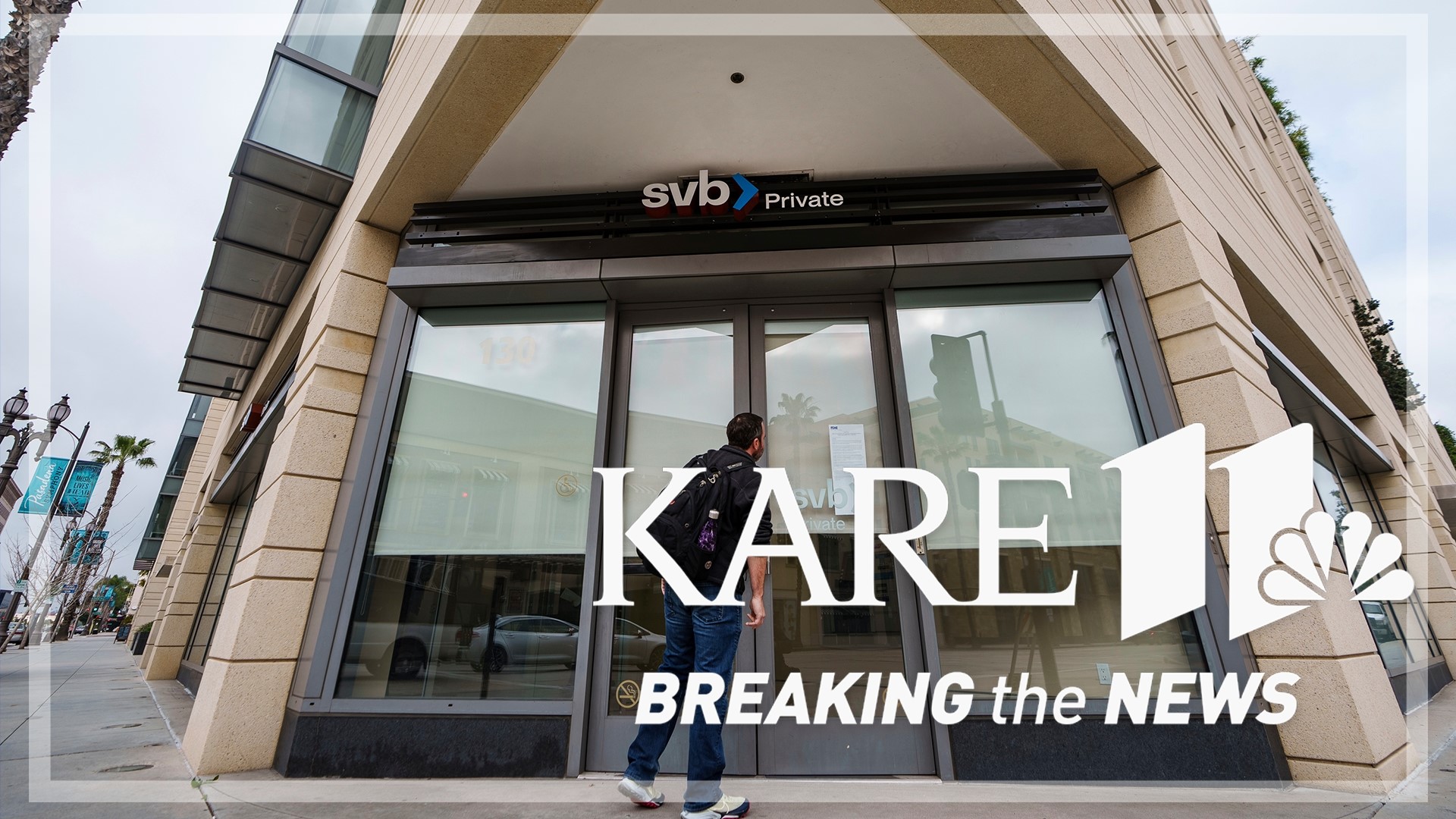MINNEAPOLIS — The collapse of Silicon Valley Bank late last week, led to rapidly rising concerns about the status of several regional banks early Monday, but financial experts say a quick response by the federal government has likely prevented similar runs on banks, especially those located in Minnesota.
"At least, from everything that we can tell right now, this is a substantial response that I think should keep this localized," said Paul Vaaler, professor of business and law at the University of Minnesota Carlson School of Business. "I think it's also added assurance to banks here in the Twin Cities, which have a different relationship than I think you would find in Silicon Valley."
Unlike Silicon Valley Bank, which specialized in tech startup loans, and Signature Bank, a leader in cryptocurrency, Vaaler says regional banks doing business in Minnesota are much more insulated.
"We do everything. We have one of the largest food producers in the world, we have one of the largest diversified manufacturers in the world — we also have the largest health insurance company in the solar system," Vaaler said. "So, this is a diversified economy and a regional bank serving it would also have a diversified base of loans and other types of transactions that you might not see in other parts of the country."
Still, Vaaler says the joint announcement by President Joe Biden, the Federal Reserve, FDIC and Treasury Department could prove critical to keeping a regional collapse from having widespread consequences.
"What we worry about is when it becomes systemic," Vaaler said. "When your bank has holdings in another bank, that has holdings in another bank — which regional banks often do — if one goes down, it has implications for not just you as a depositor, but everybody else."
Not only did the president announce that all customers will have full access to their deposits, including those above the $250,000 FDIC limit, but he also announced details of the new Bank Term Funding Program. It will offer loans of up to one year in length to banks, savings associations, credit unions and other eligible depository institutions pledging U.S. Treasuries, agency debt and mortgage-backed securities, and other qualifying assets as collateral.
Vaaler: "That's important, not just for the banks, but for the small businesses in particular that rely on banks so that they can make payroll."
Erdahl: "How concerned are you that the struggles of these banks still might lead to a larger economic recession?
Vaaler: "This is one kind of incident that is about the nature of banking, not necessarily a symptom of the broader economy. We are looking at unemployment, which is at record lows. We are looking at capital investment by, especially small businesses, that is very healthy. The other kind of underlying trends wouldn't suggest a recession whatsoever, but we have to keep the regulatory house in order."
Vaaler says he does believe better banking regulations will be critical to preventing similar problems with regional banks in the future, adding that along with accountability for those responsible, those regulations will come.
But in the meantime, he says restoring confidence is key.
WATCH MORE ON KARE 11+
Download the free KARE 11+ app for Roku, Fire TV, and other smart TV platforms to watch more from KARE 11 anytime! The KARE 11+ app includes live streams of all of KARE 11's newscasts. You'll also find on-demand replays of newscasts; the latest from KARE 11 Investigates, Breaking the News and the Land of 10,000 Stories; exclusive programs like Verify and HeartThreads; and Minnesota sports talk from our partners at Locked On Minnesota.
- Add KARE 11+ on Roku here or by searching for KARE 11 in the Roku Channel Store.
- Add KARE 11+ on Fire TV here or by searching for KARE 11 in the Amazon App Store.
- Learn more about KARE 11+ here.
Watch more Breaking The News:
Watch all of the latest stories from Breaking The News in our YouTube playlist:

